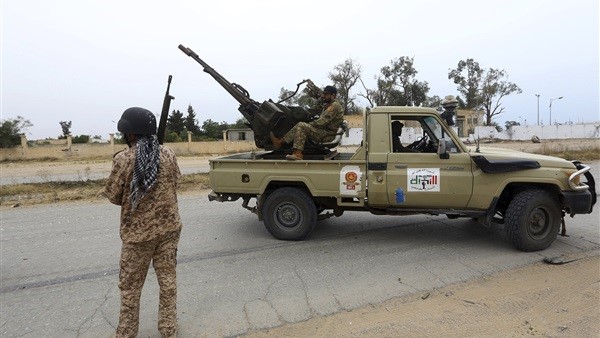Mustafa Mohamed
Libya follows in the footsteps of Afghanistan, especially in the way its Islamists deal with and classify people.
Islamists in Tripoli and Benghazi especially target women, Berbers (widely known as Amazigh), and secular activists.
They do this in a systematic manner. Islamist groups enjoy, meanwhile, support from Libyan authorities competing for power in this country since 2021.
They receive funding from the public treasury. This is why some observers believe that Libya is copying the Afghan model where the ruling Taliban classifies the members of the public and targets its opponents.
In Afghanistan’s footsteps
The outgoing head of the National Unity Government, Abdul Hamid Dbeibeh, tried to blow life into his legitimacy by enlisting the services of Islamists loyal to him, including Libyan mufti, Sadiq al-Ghariani.
Ghariani gave Dbeibeh his blessing to continue as prime minister, which allowed him to regain some of his influence in Tripoli without making political concessions.
The active Islamization of Libya can be traced in a decision to withdraw confidence from Dbeibeh as prime minister in 2021.
Dbeibeh then led a demonstration to overthrow the parliament in eastern Libya.
At that time, eastern Libya parliament decided to sack Ghariani as the mufti of Libya in 2014.
However, Ghariani maintained his position, receiving backing from militants in Tripoli.
This alliance was unprecedented in Libya, where Ghariani, with his extremist religious positions, was not close to previous rival governments, such as the Government of National Accord which was led by Fayez al-Sarraj or the interim government which was led by Abdullah al-Thinni.
However, Dbeibeh’s endorsement of Ghariani as a sheikh and teacher opened the door to a broad Islamist cultural repression campaign.
The government of Dbeibeh gave Ghariani the green light he was waiting for to start applying the provisions of Islamic law.
So the mufti launched a hard-line religious incitement campaign against Libyan women, where he issued a religious fatwa prohibiting women from traveling unaccompanied.
The Internal Security reciprocated by imposing a humiliating model based on gender discrimination that restricts the freedom of Libyan women to travel from Mitiga Airport.
This provoked controversy and anger among human rights advocates and feminists in Libya.
After the fatwa was issued, women traveling alone were forced to provide details about their trips and the reasons for the absence of a male escort”.
Ghariani asked the Dbeibeh government for special budgets to fight those who convert to Christianity.








































admin in: How the Muslim Brotherhood betrayed Saudi Arabia?
Great article with insight ...
https://www.viagrapascherfr.com/achat-sildenafil-pfizer-tarif/ in: Cross-region cooperation between anti-terrorism agencies needed
Hello there, just became aware of your blog through Google, and found ...